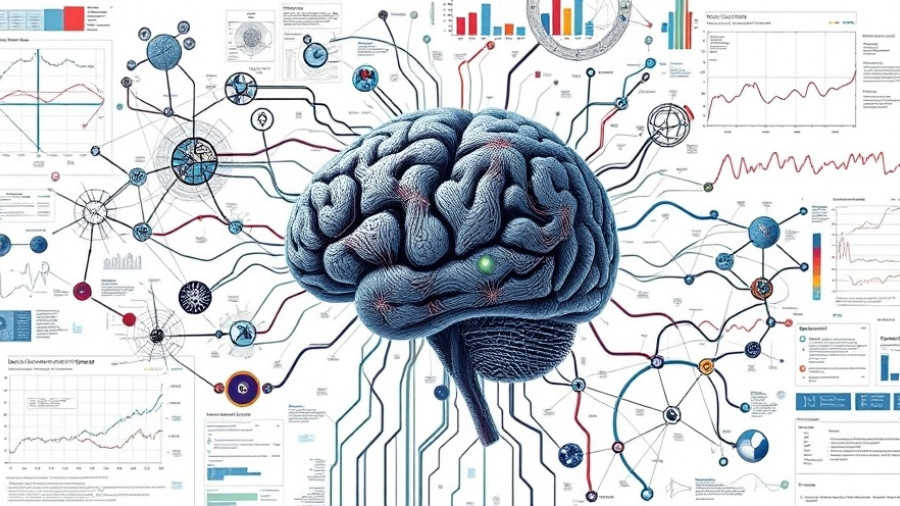
Understanding the Brain's Flight Simulator
Imagine your brain operating like a flight simulator, adept at navigating the towering challenges of uncertainty and adaptation in daily life decision-making. This intriguing analogy is realized through a revolutionary computer model called CogLinks, emerging from recent research spearheaded by Tufts University's neuroscience team. With daily demands presenting countless decisions, the brain’s capacity to judge context and assign meaning can sometimes falter, leading to slips in thought processes and behavioral patterns, particularly in disorders like ADHD and schizophrenia.
A Peek Inside CogLinks
CogLinks encapsulates the brain's neural networks and their complexities, simulating how neural circuits respond under various circumstances and how they can adapt when faced with novel information. Unlike traditional AI constructs that operate as 'black boxes,' this model reveals insights into the underlying operations of virtual neurons, offering researchers a tangible means to observe connections between brain structure and function.
Unraveling Decision-Making Processes
Delving deeper, the research highlights how the model illustrates discrepancies in decision-making domains. By testing the effects of strategic disruptions in the virtual landscape, researchers uncovered that weakening connections between vital brain areas, such as the prefrontal cortex and the mediodorsal thalamus, can stall the brain's flexibility. This pathway is critical for achieving adaptability and maintaining a balance between habit-driven and flexible thinking, which is crucial for effective decision-making.
Real-World Validation Through Imaging Studies
To ensure these insights extend beyond the virtual realm, the team employed fMRI technology alongside their computational simulations to track real-time brain activity in human participants under changing game conditions. The synchronicity between virtual predictions and real-world reactions underscores the power of CogLinks, confirming that the mediodorsal thalamus serves as an operational switchboard coordinating the brain's two main learning systems.
Paving the Way for Algorithmic Psychiatry
One of the overarching aims of this research is to lay the foundation for what researchers term "algorithmic psychiatry". By harnessing insights derived from CogLinks, clinicians may soon be equipped with tailored approaches for diagnosing and treating mental health disorders that stem from maladaptive decision-making processes.
The Future of Cognitive Science and Health
The implications of this research extend far beyond the confines of neuroscience laboratories. As society increasingly grapples with mental health issues and decision-making disruptions, understanding how the brain interprets and reacts to uncertainties becomes pivotal. Whether it is through promoting healthier lifestyles or developing innovative health and wellness strategies, unlocking the potential of our cognitive processes can signify a significant step toward improving mental health outcomes.
Taking Action: Prioritizing Mental Wellness
As we reflect on these insights, it becomes clear that fostering a greater understanding of cognitive adaptability can empower individuals to make informed choices about their health and wellness. By embracing resources like community wellness programs or engaging with mental health professionals, we can become proactive participants in our cognitive journeys. Whether through lifestyle changes, alternative therapies, or simply seeking knowledge through health and wellness literature, now is the time to take charge of our mental well-being.
Engage with health and wellness activities or events in your area to take proactive steps toward optimizing your mental well-being!
 Add Element
Add Element  Add Row
Add Row 




Write A Comment